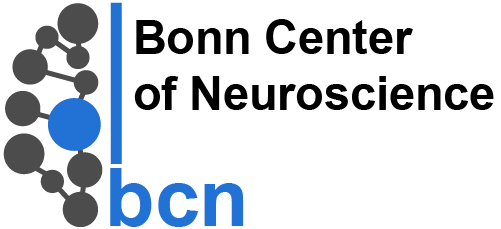Department of Ophthalmology
University of Bonn Medical Center
Ernst-Abbe-Str. 2
D-53127 Bonn
Our group focusses on retinal and macular degenerative diseases with a particalur emphasis on complex multifactorial age-related macular degeneration (AMD) and monogentic retinal retinal degenerations. Age-related macular degeneration (AMD) is a leading cause for global blindness. We conduct both natural history studies to identify and validate novel structural and functional biomarkers and address genetic and environmental factors. Hereby we apply novel high-resolution imaging methodology including confocal scanning laser ophthalmoscopy and spectral-domain and swept-source optical corherence tomography. We established the Grading of Digital fundus Examination (GRADE) Reading Center (a Steinbeis Research Center) to fulfill the increasing need of standardized and systematic analysis of digital retinal imaging for prospective clinical trials. This involves studies on the natural history of potentially blinding retinal diseases as well as interventional trials to evaluate the efficacy and safety of new therapeutic strategies. In this context we use AI-based retinal image analyses. We are particularly interested in automated quantifications of AMD high risk features such as different phenotypes of drusen as well as in mapping retinal function de novo in order to provide an en-face high-resolution map of predicted retinal sensitivity (“inferred sensitivity”) based on structural information. Hereby machine learning algorithms are applied to predict functional impairment based on multimodal imaging. This may be applicable in future interventional trials to allow for refined investigation of treatment effect superior to standard functional testing without the need for psychophysical examinations such as mesopic and scotopic microperimetry.
Preventing late-stage disease in AMD by therapeutic intervention represents an unmet need in AMD. However, currently, no outcome measures are clinically validated and accepted as clinical endpoints by regulatory agencies for drug development in intermediate age-related macular degeneration. The MACUSTAR consortium, a public-private research group funded by the European Innovative Medicines Initiative 2, intends to close this gap. A large natural history study across 20 clinical sites in Europe currently ongoing will address structural and functional and patient outcome aspects of intermediate AMD including machine-learning approaches for identifying prognostic biomarkers. This observational study consists of a cross-sectional and a longitudinal part. Functional outcome measures assessed under low contrast and low luminance have the potential to detect progression of visual deficit within iAMD and to late AMD. Structural outcome measures will be multimodal and investigate topographical relationships with function. As clinical endpoints currently accepted by regulators cannot detect functional loss or patient-relevant impact in iAMD, we will clinically validate novel candidate endpoints for iAMD.


Contact:
Prof. Dr. Heinz Beck
Institute of Experimental Epileptology and Cognition Research
Life and Brain Center
University of Bonn Medical Center
Sigmund-Freud Str. 25
53127 Bonn
Contact:
Prof. Dr. Heinz Beck
Institute of Experimental Epileptology and Cognition Research
Life and Brain Center
University of Bonn Medical Center
Sigmund-Freud Str. 25
53127 Bonn
Contact:
Prof. Dr. Heinz Beck
Institute of Experimental Epileptology and Cognition Research
Life and Brain Center
University of Bonn Medical Center
Sigmund-Freud Str. 25
53127 Bonn